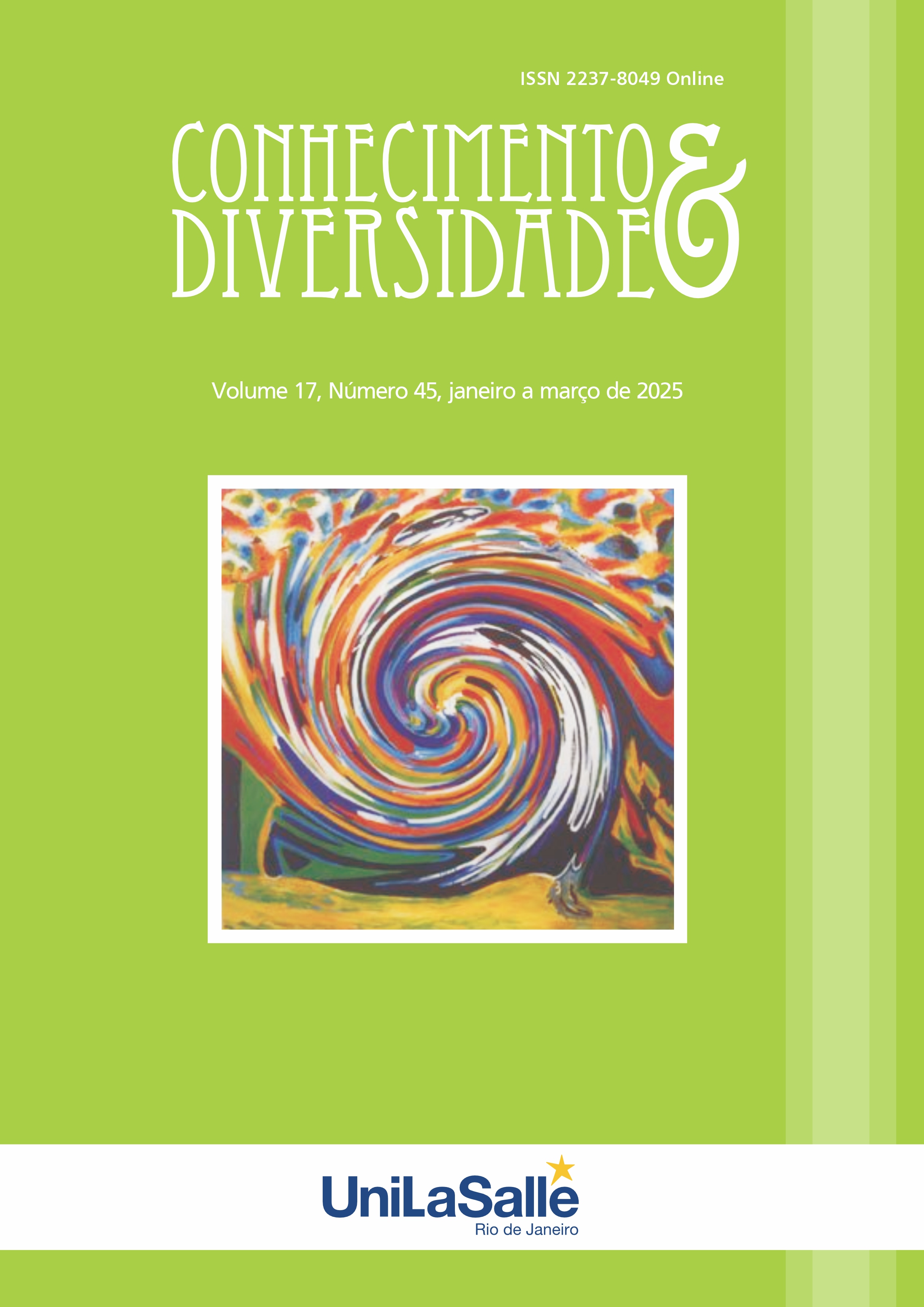VIETNAMESE EDUCATION DURING THE FEUDAL ERA
SIGNIFICANT INFLUENCES OF CONFUCIAN EDUCATION
DOI:
https://doi.org/10.18316/rcd.v17i45.12391Palabras clave:
Confucianism, Feudal era, Intellectual class, Moral cultivation, Vietnamese educationResumen
This paper explores the significant impact of Confucianism on Vietnamese education during the feudal era, spanning from 939 to 1945. Confucianism, introduced through Chinese influence, gradually became embedded in Vietnam’s political, social, and educational systems. The Confucian philosophy of education, which emphasizes moral development, hierarchy, and social stability, shaped the Vietnamese education system by fostering the cultivation of virtuous individuals and officials for governance. This study delves into the evolution of Confucian educational ideals, their integration with Vietnam’s traditional culture, and their influence on the establishment of a bureaucratic system that supported the feudal state’s governance. Despite its contributions, Confucian education also had limitations, particularly in its rigid and rote-based methods, which hampered creativity and critical thinking. The paper aims to offer a comprehensive analysis of the dual impact—both positive and negative—of Confucian education on Vietnamese society.
Citas
Do, Trang. 2023. "Humboldt's philosophy of university education and implication for autonomous education in Vietnam today", Perspektivy nauki i obrazovania 62 (2): 549-561. https://doi.org/10.32744/pse.2023.2.32.
Do, Trang, and Huy Quang Ngo. 2023. "Patriotism: The Philosophical Foundation of the Vietnamese People and its Manifestations in the Rural Villages", ISVS e-journal 10 (4): 119-133, http://isvshome.com/pdf/ISVS_10-4/ISVSej_10.4.8.pdf.
Doan, Trung Con, ed. 1950. Mencius. Vol. 2. Saigon, South Vietnam: Tri Duc Tong Tho. Institute of Sino-Nom Studies. 2002. Sino-Nom Literature. Vol. 1. Hanoi: Social Sciences Publishing House.
Le, Van Giang. 2003. A Simplified History of Over 1000 Years of Vietnamese Education. Hanoi: National Political Publishing House.
Ly, Hieu Tung. 2021. "Impacts of Confucianism on Vietnamese culture", International Communication of Chinese Culture 8 (3): 347-361. https://doi.org/10.1007/s40636-021-00228-y.
National History Archives of the Nguyễn Dynasty. 2002. The Chronicles of Đại Nam (Đại Nam Thực Lục). Hanoi: Education Publishing House.
Ngo, Ha T. 2020. "‘Standing Between the Flows’: Interactions Among Neoliberalism, Socialism and Confucianism in Vietnamese Higher Education", in: Phan Le Ha and Doan Ba Ngoc (eds), Higher Education in Market-Oriented Socialist Vietnam: New Players, Discourses, and Practices, pp. 41-61. Cham: Springer.
Nguyen, Duc Lan, ed. 1998a. Chu Hy's notes on the Four Books. Hanoi: Culture and Information Publishing House.
Nguyen, Hien Le. 2003. Confucius and the Analects. Hanoi: Literature Publishing House.
Nguyen, Ngoc Huy. 1998b. "The Confucian incursion into Vietnam", in: Walter H. Slote and George A. De Vos (eds), Confucianism and the Family, pp. 91-104. New York: SUNY Press.
Nguyen, Q. H., et al. 2020. "Religion, culture and Vietnam seen from a cultural-religious point of view", European Journal of Science and Theology 16 (2): 137-49, http://www.ejst.tuiasi.ro/Files/83/13_Nguyen%20et%20al.pdf.
Nguyen, Quang Ngoc. 2010. The Historical Process of Vietnam. Hanoi: Vietnam Education Publishing House.
Nguyen, Quyet Thi, et al. 2023. "Confucius’s political philosophy of governing the country: Historical and contemporary considerations", XLinguae 13 (3): 2-14. https://doi.org/10.18355/XL.2023.16.03.01.
Nguyen, Thanh Binh. 2000. "Some thoughts on the object and content of education and training of Confucianism", Journal of Theoretical Education 2000 (10).
Nguyen, Thi Quyet. 2023. "Confucius’ conception of the political being and its significance for building the political being in present-day Vietnam", IKENGA International Journal of Institute of African Studies 24 (2): 1-23. https://doi.org/10.53836/ijia/2023/24/2/003.
Nguyen, Tuan Cuong. 2019. "Research of square scripts in Vietnam: An overview and prospects", Journal of Chinese Writing Systems 3 (3): 189-198. https://doi.org/10.1177/2513850219861167.
---. 2020a. "The Last Confucians of Mid-20th Century Vietnam: A Cultural History of the Vietnam Association of Traditional Studies", Asian Studies 8 (2): 185-211. https://doi.org/10.4312/as.2020.8.2.185-211.
---. 2020b. "Private Academies and Confucian Education in 18th-Century Vietnam in East Asian Context: The Case of Phúc Giang Academy", in: Confucian Academies in East Asia pp. 89-125. Brill.
Phan, Van-Khoai. 2020. "The basic grammatological unit in Vietnam’s Nom script and its relationship with those in Chinese script", Journal of Chinese Writing Systems 4 (3): 161-167. https://doi.org/10.1177/2513850220941134.
Quang Dam. 1998. Confucianism past and present. Hanoi: Culture and Information Publishing House.
Smith, Ralph B. 2014. "The cycle of Confucianization in Vietnam", in: Beryl Williams (ed) Pre-Communist Indochina, pp. 59-70. London: Routledge.
Tho, Nguyen Ngoc. 2016. "Confucianism and humane education in contemporary Vietnam", International Communication of Chinese Culture 3 (4): 645-671. https://doi.org/10.1007/s40636-016-0076-8.
Tran, Le Sang, ed. 2004. Sino-Nom Literature. Vol. 1. Hanoi: Social Sciences Publishing House.
Tran, Van Giau. 1993. Traditional Spiritual Values of the Vietnamese People. Hanoi: Social Sciences Publishing House.
Vuong, Quan-Hoang, et al. 2018. "Cultural additivity: behavioural insights from the interaction of Confucianism, Buddhism and Taoism in folktales", Palgrave Communications 4 (1): 143. https://doi.org/10.1057/s41599-018-0189-2.
Wang, Yueqing, et al. 2020. "The Great Ultimate (taiji, 太极)", in: Yueqing Wang, Qinggang Bao and Guoxing Guan (eds), History of Chinese Philosophy Through Its Key Terms, pp. 221-231. Singapore: Springer Singapore.
Woodside, Alexander. 2018. "Territorial order and collective-identity tensions in Confucian Asia: China, Vietnam, Korea", in: Walter Lippmann (ed) Public Spheres and Collective Identities, pp. 191-220. London: Routledge.
Yang, Rui. 2022. The Chinese idea of a university: Phoenix reborn. Hong Kong: Hong Kong University Press.
Descargas
Publicado
Número
Sección
Licencia
Derechos de autor 2025 Trang Do, Khue Dinh Pham

Esta obra está bajo una licencia internacional Creative Commons Atribución 4.0.
Tal como recomienda el Public Knowledge Project, RCD adopta para sus artículos una licencia CREATIVE COMMONS: Attribution CC BY 4.0
Esta licencia permite que otros distribuyan, remezclen, adapten y desarrollen su obra, incluso con fines comerciales, siempre que le atribuyan a usted el mérito de la creación original.
Esta es la licencia más adecuada que se ofrece.
Recomendado para la máxima difusión y utilización de los materiales bajo licencia.



